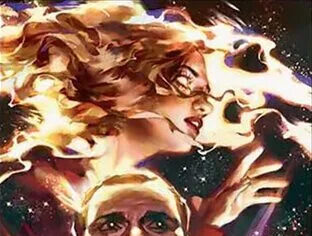MTG Banned and Restricted list
Announcement Date: January 18, 2016
Effective Date: January 22, 2016
Magic Online Effective Date: January 27, 2016
Modern:
Summer Bloom is banned.
Splinter Twin is banned.
Pauper:
Cloud of Faeries is banned.
The list of all banned and restricted cards, by format, is here. The full list of cards banned in Modern is here. The full list of cards banned in Pauper is here.
Next B&R Announcement: April 4, 2016
EXPLANATION OF CHANGES
Wizards of the Coast examines tournament results from each competitive Constructed format. When a format becomes imbalanced, or too many games are not interactive, we examine the cause.
Here are our changes:
Modern
We look for competitively viable decks that frequently win before the fourth turn. The Amulet Bloom deck has reached a performance level that is consistent with those criteria. In the past year, Justin Cohen finished second at Pro Tour Fate Reforged and Benjamin Miller made the Top 8 at Grand Prix Oklahoma City. At the StarCityGames.com Cincinnati Open, with over 1,000 competitors, Bobby Fortanely won and Bill Comminos finished in the Top 8.
This deck frequently wins before the fourth turn. With an Amulet of Vigor, a Summer Bloom, a bounce land such as Simic Growth Chamber, and another land such as Gemstone Mine, the deck can generate seven mana for additional plays on turn two. Primeval Titan, or Hive Mind with a Summoner’s Pact, can end the game very quickly. For these purposes, we are treating a turn-three Hive Mind with a Pact (which forces your opponent to pay 2GG next upkeep or lose the game) as a turn-three win.
We looked into which card could be banned to reduce the frequency of the very early wins. When the deck generates seven mana on turn two, there are a lot of cards that could lead to a quick finish. So we focused on the cards that lead to that explosive mana, and that led us to choose between Summer Bloom and Amulet of Vigor.
Since either card would be sufficient, the issue turned to what possibilities remained after either card was banned. Banning Amulet of Vigor leaves a Summer Bloom ramp deck. Banning Summer Bloom allows Amulet of Vigor with tapped lands. While it was not clear that either of these has all the tools to form a competitive deck today, the deck with Amulet of Vigor is more distinctive and has more potential as more tapped lands are printed. Azusa, Lost but Seeking is a potential replacement for Summer Bloom, but it is less efficient—so while there is a deck to play, it won’t have frequent turn-three wins.
For those reasons, Summer Bloom is banned from Modern.
We also look for decks that hold a large enough percentage of the competitive field to reduce the diversity of the format.
Antonio Del Moral León won Pro Tour Fate Reforged playing Splinter Twin, and Jelger Wiegersma finished third; Splinter Twin has won two of the four Modern Pro Tours. Splinter Twin reached the Top 8 of the last six Modern Grand Prix. The last Modern Grand Prix in Pittsburgh had three Splinter Twin decks in the Top 8, including Alex Bianchi’s winning deck.
Decks that are this strong can hurt diversity by pushing the decks that it defeats out of competition. They can also reduce diversity by supplanting similar decks. For instance, Shaun McLaren won Pro Tour Born of the Gods playing this Jeskai control deck. Alex Bianchi won our most recent Modern Grand Prix playing a similar deck but adding the Splinter Twin combination. Similarly, Temur Tempo used to see play at high-level events but has been supplanted by Temur Twin.
We considered what one would do with the cards from a Splinter Twin deck with Splinter Twin banned. In the case of some Jeskai or Temur, there are very similar decks to build. In other cases, there is Kiki-Jiki as a replacement.
In the interest of competitive diversity, Splinter Twin is banned from Modern.
PAUPER
The format currently has poor color balance. Of the ten most played nonland cards, nine are blue; the tenth is Lightning Bolt. We looked into the cause of this.
The Esper Familiars deck uses Sunscape Familiar and Nightscape Familiar to reduce the cost of blue spells, which include “free spells” such as Cloud of Faeries and Snap. Combined with the bounce lands, this means the “free spells” effectively produce mana. Here is a typical winning position: One casts Ghostly Flicker targeting Cloud of Faeries and a Mnemonic Wall, netting mana and getting back the Ghostly Flicker. Once enough mana is produced, the Ghostly Flicker can target a Sea Gate Oracle instead of the Cloud of Faeries, repeatedly looking for Sage’s Row Denizen. From there, the flickering mills the opponent’s deck.
Because of all the card-drawers here, it is difficult for non-blue decks to defeat this deck. It pushes the metagame to the imbalanced state where blue is heavily overplayed. Cloud of Faeries is likely the most problematic card in the deck.
In the interest of color diversity, Cloud of Faeries is banned from Pauper.




